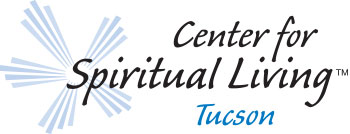This week during my morning quite time I have been studying faith. What is it, how does one obtain it, increase it and build a life that is reflective of it. In my study I came across this quote from Ernest Holmes in his book Science of Mind; A Philosophy, a Faith a Way of Life.
“In order to have faith we must have the conviction that all is well. In order to keep faith we must allow nothing to enter our thought which will weaken this conviction. Faith is built up from belief acceptance and trust. Whenever anything enters our thought which destroys these attitudes to that extent faith is weakened.” – Ernest Holmes
I love this quote. Let’s dissect it together to uncover what’s there.
In order to have faith we must have the conviction that all is well
To understand faith it is important that we also understand fear and its origin. To experience fear is natural. It was created for survival and to protect us from physical danger. However, fear that results from something other than being attacked by a lion or chased by natives with spears is unnatural. This unnatural form of fear is created by our imagination or the image which we hold within the nation of our mind.
What images are you holding in your mind at this very moment? Do you see images of people that love you, support your growth and encourage openness to new possibilies; of you being thankful for the endless opportunities surrounding you (that you may or may not choose to receive); of how you’ve overcome past obstacles and are now embracing a future worthy of you? OR are you holding images of painful relationships that you have not chosen to accept or forgive, or images of losing a client or a job, of running out of money and sleeping on the street, of a future where you’ve somehow ended your life unfulfilled, settling for memories about dreams of what your life could have become. What images would you like to see? What possibilities would you like to be available? You have the power to choose.
In order to keep faith we must allow nothing to enter our thought which will weaken this conviction.
Having faith is about choosing to see life purely as the symphony it is. It is about giving up the image, opinion or belief that there is something “wrong” with the world, with your life with the people around you. Having faith is finally accepting that ALL truly is well in spite of what you may see with your eyes, hear with your ears or feel as a result of holding disempowering and/or judgment-based images in your mind.
Now, the logical and/or skeptical mind may argue that there is indeed evil and danger in the world and we must protect ourselves. This thinking says that it is short sited and unsafe to live as if “all is well.”
To this thinker, I would suggest that it is short sited and unsafe to live as if “all is not well.” This form of thinking is faith in reverse (fear) and is just as powerful to create and/or destroy one’s life. While there are indeed many forms of danger in the world, danger is not somehow “bad or wrong.” It just is. When we stop seeing life for what it is–neutral yet abundantly generous, and instead choose to assess and cast unfavorable judgment on it, we levy judgment upon ourselves and erode our faith or belief in the abundance and oneness that is.
Faith is built up from belief acceptance and trust. Whenever anything enters our thought which destroys these attitudes to that extent faith is weakened.
What do you believe or hold strongly as an opinion? What is your attitude about this belief? What is your attitude because of this belief? This attitude or way of being can build or destroy your faith and ultimately your life.
How you experience the world is based on your faith. Do you accept life as it is? Do you trust that laws of nature and success will never fail? Do you trust that the laws of love and spirit will never fail? Do you trust yourself to live fully as a part of the all that is? Do you trust that the opportunities and people that are assigned to your life are all there to further your growth and encourage mastery of your thinking and emotions?
You have the power to build your faith? You are building faith at this very moment. What type of faith is it? Does it pull you toward your destiny or drag you in reverse and keeps you in the past?
Bottom line: Building faith and creating new possibility is about choice. Nothing more is required.
By: Michael Tucker




